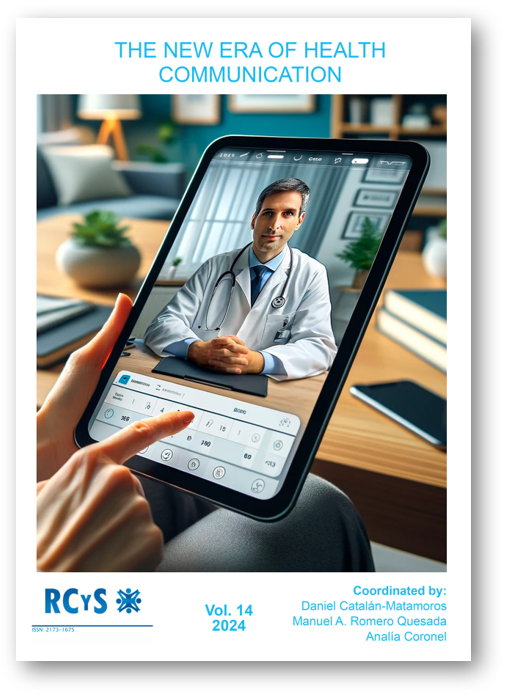The new era of Health Communication

THE NEW ERA OF HEALTH COMMUNICATION
Health communication has entered a new era, characterized by rapid technological advancements and an unprecedented shift in how people access and consume information. The significance of this field has heightened in recent years, particularly in light of global events such as the COVID-19 pandemic, which have underscored the vital importance of clear, accurate, and effective communication in public health. Now more than ever, it is critical to explore how health communication can adapt and evolve in response to these emerging challenges.
In this context, the special issue "The New Era of Health Communication" seeks to bring together leading experts, researchers, and practitioners to explore current trends, innovations, and challenges in health communication. This field, ranging from risk communication and crisis management to promoting healthy behaviors and combating misinformation, is more relevant than ever in a world where information can be widely disseminated at the push of a button.
Digitalization has opened new avenues for health communication, allowing broader reach and more direct interaction with the public. However, it has also brought unique challenges, such as the proliferation of false or misleading information and the need for communication strategies that cater to diverse audiences and platforms. Therefore, this special issue aims to address a range of critical issues, from the impact of social media on public health perception to the development of effective and culturally sensitive communication strategies.
We invite contributions that not only address these challenges but also explore innovative opportunities to enhance health communication in this new digital era. With a focus on empirical evidence, innovation, and practical application, this special issue aims to provide a platform for exchanging ideas, strategies, and best practices that can inform and improve the practice of health communication globally.
TOPICS OF INTEREST:
This special issue seeks to address, but is not limited to, topics such as:
-
Innovative strategies in public health communication.
-
The impact of social media and digital platforms on health communication.
-
Ethical challenges and misinformation in health communication.
-
Risk communication and crisis management in health.
-
The role of communication in promoting public health policies.
COORDINATED BY:
Daniel Catalán professor in the Department of Communication at Carlos III University of Madrid and Director of the UC3M MediaLab. He has completed his doctoral thesis and research in health communication and holds a Master's degree in Public Health from the Nordic School of Public Health. He has been a visiting professor at various universities and national and international conferences. Additionally, he has worked for national and international organizations, such as the Ministry of Health, Social Services and Equality of Spain, the European Centre for Disease Prevention and Control, and the World Health Organization. He is a founding member and president of the Spanish Association of Health Communication.
ORCID: https://orcid.org/0000-0001-7783-4984
Manuel Alejandro Romero Quesada Acting Vice Dean for computerization and 2nd Head of the Department of Information Sciences at the University of Havana. With a doctorate in digital ecosystems in the field of information sciences, he is noted for his extensive experience in research, teaching, and academic management. An active member of associations such as ASCUBI, SOCICT, and ACNU CUBA, he has taught subjects like "Informational Thinking" and "Web Positioning Workshop". Romero Quesada has been key in managing and implementing educational technologies in the department. A participant in national and international conferences, he has made significant contributions in fields like Information Sciences and information technologies. Recognized for his achievements, including the Golden Chalk award, Romero Quesada is an exemplary professor with national and international impact.
ORCID: https://orcid.org/0000-0002-0721-623X
Analía Coronel Holds a degree in Marketing and a Diploma in Health Networks. Thesis candidate in Organizational Psychology and Community Manager. Director of the Health Communication Observatory at the National University Arturo Jauretche. Head of Social Communication and Telemedicine at the El Cruce High Complexity Hospital Network. Member of the Health Communication Council of the Argentine Public Health Association.
ORCID: https://orcid.org/0009-0007-0014-058X

